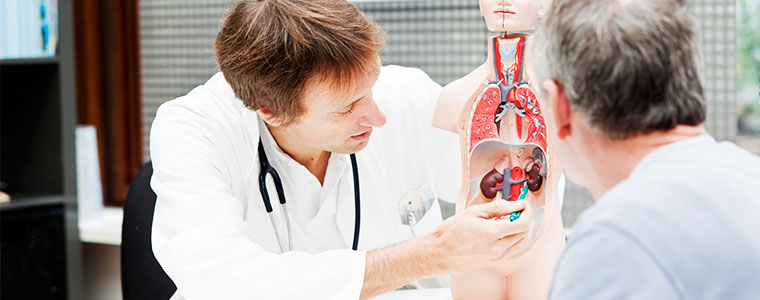Your doctor can help you determine which foods to avoid. But in general, the following foods tend to be high in oxalates:
- Spinach
- Tea
- Cola
- Soy
- Nuts
I also recommend that you talk to your doctor if you take a vitamin C supplement. One study showed that men who took a 1,000-milligram vitamin C supplement on a regular basis had double the risk of calcium oxalate kidney stones over men who didn’t take a supplement. This may be because the body disposes of excess vitamin C in the form of oxalates, which end up in urine.
Calcium
Oxalate levels in the urine aren’t just tied to oxalate-rich foods. Calcium levels also play a role in the amount of oxalates that end up in urine. A lack of calcium in your diet can increase the amount of oxalates that make their way to the kidneys.
All of our bariatric surgery patients are instructed to take calcium supplements following their procedures. We recommend that patients take at least 1,500 milligrams of calcium per day. Taking calcium citrate supplements as opposed to calcium carbonate may help, as people with low levels of citrate are at increased risk for kidney stones. Citrate is a compound found in citrus fruits like lemons and oranges.
Getting the calcium you need in your diet is the best option. Foods that are rich in calcium include:
- Watercress, kale and arugula
- Green beans
- Low-fat cheeses, milk and other dairy products
Reducing salt is important for maintaining healthy calcium levels. Salt, or sodium, causes the body to lose more calcium than normal. That calcium ends up in urine. Most people get far too much salt in their diets in the form of processed foods, so watch for sodium levels on nutrition information when you shop for groceries.
What to watch out for after bariatric surgery
It’s a good idea to ask your bariatric surgeon about the risk of kidney stones. We work closely with our bariatric surgeons to minimize patients’ risk after surgery.
Make sure to watch for the signs of kidney stones if you’ve had bariatric surgery. These symptoms include:
- Blood in your urine
- Loss of appetite
- Nausea or vomiting
- Sudden, severe pain in the side or mid-back
You may also notice a fever or chills along with any of these symptoms. This can be a sign of an infection.
Request an appointment with one of our urologists if you notice any of these symptoms.
Request an Appointment
Bariatric surgery can be life-changing—not to mention lifesaving—for many patients who struggle with obesity. But it can increase your risk of kidney stones. Making smart decisions about your diet after surgery can help you reduce this risk so you can focus on living a healthier life.

